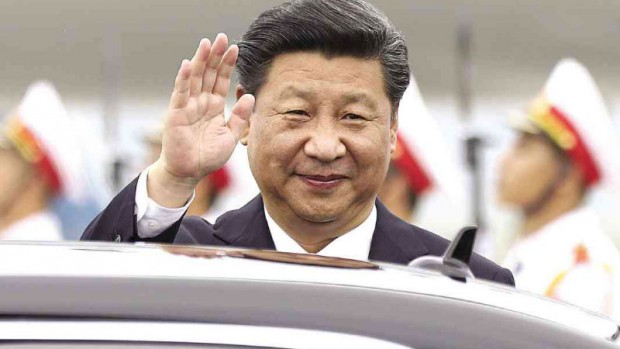Beijing would like to improve relations with Manila through joint efforts, with bilateral ties facing important opportunities for growth, Chinese President Xi Jinping told the Philippines’ new president, who was sworn in on Thursday.
Rodrigo Duterte, 71, took the oath of office at Malacañang Palace in Manila, becoming the 16th president of the Southeast Asian nation of 102 million people.
Ties between the two countries have nosedived since a unilateral arbitration case over the South China Sea dispute was brought by outgoing Philippine president Benigno Aquino III.
Unlike his predecessor, Duterte, the first local mayor to be directly elected as president of the Philippines, is expected to take a pragmatic approach to the South China Sea dispute with China, analysts said.
READ: Duterte wants friendly ties with China; okays direct talks
Xi said in a congratulatory letter to Duterte that China and the Philippines are neighbors, and being friendly is a tradition of the two countries that has endured for more than 1,000 years. This course is the right one and should be adhered to, he said.
READ: China optimistic Duterte gov’t can stabilize ties over sea issue
In his inaugural speech, Duterte promised a relentless and sustained fight against corruption, criminality and illegal drugs, but did not mention his government’s policy toward China.
During a speech in Davao City on Monday, Duterte said he would refrain from commenting on the territorial dispute in the South China Sea, pending the decision in the arbitration case, which will be announced on July 12.
In May, he said he wanted China to help improve his nation’s poor infrastructure by building a railway system linking the entire country, especially on the southern island of Mindanao, which is seen as a new area for economic growth.
Wilson Lee Flores, a Philippine political columnist, said: “President Duterte is a very pragmatic and politically clever leader. I really believe he can normalize China-Philippine relations.”
He said Duterte is likely to focus more on “win-win” economic advantages for both countries, rather than small misunderstandings and differences.
“I hope the Chinese government reciprocates vigorously and enthusiastically,” he added.
